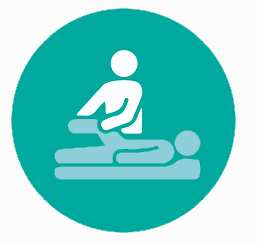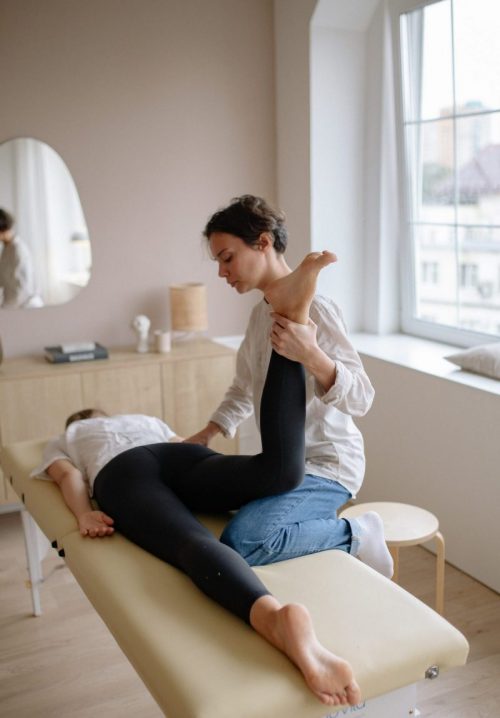Physiotherapy in PHYSIOPLEXUS is evidenced by a specialized approach in the different areas it covers. Physiotherapists are directed to areas in which they have professional experience and specialized knowledge. and specialized knowledge.
Our Physiotherapy consultations are based on the profession's standards of practice, scientific evidence and clinical experience of professionals.
We seek with our approach to achieve fast and effective results. and effective.
Our operating model is based on rigorous assessment, physiotherapy diagnosis, clinical reasoning, intervention planning and constant reassessment of results
- Manual Therapyand Osteopathy Techniques
The Advanced Physiotherapy consultation, based on Manual Therapy and Osteopathy, stands out for its rigorous evaluation method, ddiagnosis and the effectiveness of its treatment results.
It differentiates itself by the combination of mobilization, manipulation, massage, stretching and muscle strengthening, which aim to have a positive impact on the muscular, bone, fascial, vascular and nervous tissue.
- Physiotherapy in Temporomandibular Joint Disorders (TMJ)
In the Advanced Physiotherapy consultation for TMJ Disorders we work not only on the temporomandibular joint (TMJ), but at the level of the entire cranio-cervico-mandibular complex, due to its interdependent relationship.
The temporomandibular joint (TMJ) It is one of the most complex joints in the body. Dysfunctions at this level can affect chewing, swallowing, speech and facial expressiveness.
Furthermore, they can cause other dysfunctions and/or postural changes, making it important to think of this joint as an integral part of the cranio-cervico-mandibular complex.
Associated with this dysfunction are a series of signs and symptoms, namely:
- Pain and/or difficulty in opening and/or closing the mouth;
- Joint noises: clicking, crackling, “clicking” or bouncing sensations that appear when opening and/or closing the mouth.
In parallel to these signs and symptoms, it is common for patients to also present:
- Bruxism;
- “Daytime bruxism”, associated with stress and anxiety factors;
- Local pain;
- Pain in the neck and shoulder region;
- Dental reflex pain;
- Headaches;
- Tinnitus and vertigo;
- Fatigue in the face, especially when chewing;
- Sudden change in occlusion.
The treatment of TMJ disorders can be applied in any age, the choice of techniques being adapted to the patient and their clinical condition.


